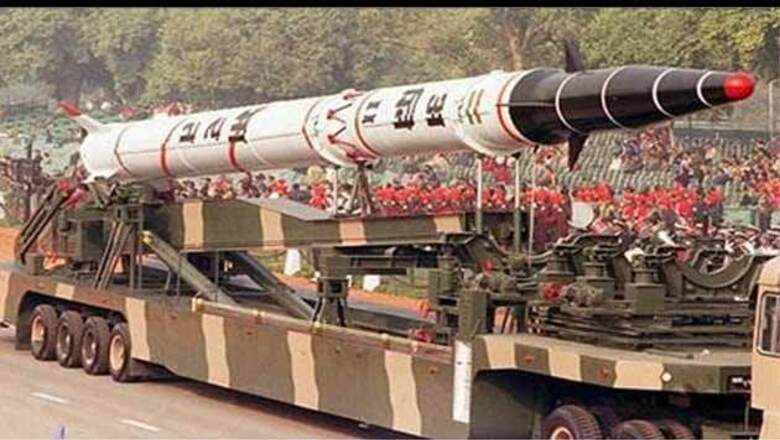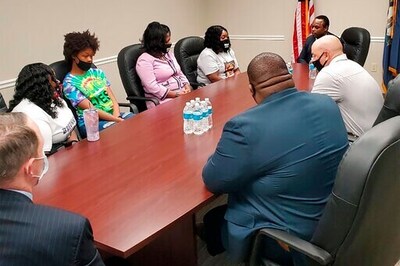
views
New Delhi: Making it clear it will not give up nuclear arms until universal disarmament is achieved, India on Tuesday said the weapons had ended attempts by global powers to blackmail it to toe a particular line.
"Nuclear weapons today are integral part of our national security and will remain so, pending non-discriminatory and global nuclear disarmament," External Affairs Minister SM Krishna said.
India's "hard-headed" leadership had fought "explicit or implicit threat" by global powers to change its "behaviour, National Security Advisor Shivshankar Menon said addressing a national conference on global nuclear disarmament to commemorate the 24 years of the Rajiv Gandhi Action Plan for a nuclear weapons free world order.
"On at least three occasions before 1998 other powers used the explicit or implicit threat of nuclear weapons to try and change India's behaviour," Menon said without elaborating.
The global powers did not succeed in changing India's behaviour because of the "hard-headed leadership we were fortunate to have," he told the conference that was attended by 1500 students from 30 institutions of higher education.
"Since we became a declared nuclear weapons state in 1998 we have not faced such threats," Menon said.
The NSA made it clear that India will continue to have nuclear weapons till universal nuclear disarmament becomes a reality.
"We do think that we would be more secure in a world that is truly free of nuclear weapons. But until we arrive at that happy state, we have no choice, and a responsibility towards our own people, to have nuclear weapons to protect them from nuclear threats," Menon said.
Observing that nuclear weapons make a contribution to the country's security in an uncertain and anarchic world, Menon said, "The possession of nuclear weapons has, empirically speaking, deterred others from attempting nuclear coercion or blackmail against India."
In an apparent reference to Pakistan, he said unlike certain other nuclear weapon states, India's weapons were not meant to redress a military imbalance, or to some perceived inferiority in conventional military terms, or to serve some tactical or operational military need on the battlefield.
Krishna, whose message was read out at the conference, said India has maintained voluntary and unilateral moratorium on nuclear explosive testing and was prepared to negotiate a Fissile Material Cut-off Treaty (FMCT) in the Conference on Disarmament (CD) in Geneva.
"We are committed to working with the international community to advance our common objectives of non-proliferation, including through strong export controls and membership of the multilateral export regimes," he said.
"As a nuclear weapon state, India s support for global, non-discriminatory nuclear disarmament has not diminished," Krishna said listing out steps such as presenting a Working Paper on Nuclear Disarmament in the UN General Assembly.
Vice President Hamid Ansari said negotiations on FMCT have been deadlocked in the CD at a time that is more favourable since the onset of the Cold War to working towards meaningful disarmament.
Ansari said now that India has become a state with nuclear weapons, its credibility to raise the issue of global nuclear disarmament was even higher.
"India has thus become the first and thus far only nuclear power to be in the forefront of unambiguously advocating a detailed, eminently practical and comprehensive roadmap to rid the world of the danger of instant annihilation," he said.



















Comments
0 comment